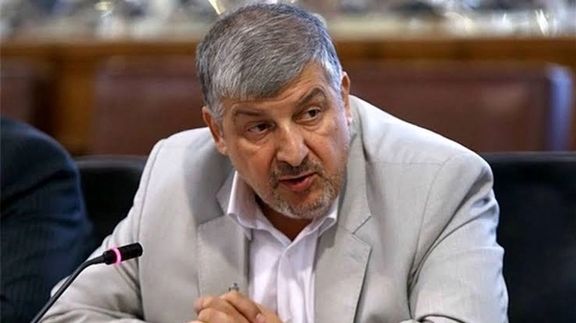Iran’s Ultraconservatives Reinforce Position in Government, State TV

A moderate conservative politician says the ultraconservative Paydari Party has occupied most power centers including the parliament and the state television.

A moderate conservative politician says the ultraconservative Paydari Party has occupied most power centers including the parliament and the state television.
Former lawmaker Mansour Haghighatpour told Etemad Onlinethat the "audacious Paydari Party" has a lot of money, controls several powerful institutions and has seized and occupied the state television silently.
Haghighatpour is close to Iran’s former conservative parliament (Majles) speaker Ali Larijani who recently had a public run-in with ultraconservatives or hardliners.
Meanwhile, referring to the great number of Paydari members at the Iranian parliament, Haghighatpoor said “had the Guardian Council not disqualified” moderate and reform-minded candidates in the previous parliamentary elections, debates at the Majles would have replaced the nationwide protests that rocked Iran last year.
The Guardian Council, which screens candidates for elections, disqualified hundreds of non-hardliners in the 2020 Majles elections. The Council is under the control of Iran’s ruler Ali Khamenei.

He added that Iran's ultraconservatives see themselves as the only revolutionary force in the country and call others spies and seditionists. He further said that the Paydari Party has access to money and media and has spent a lot of money on garnering support on social media.
"They have been given privileged access to funds, political power and media although they are just two busloads of politicians," Haghighatpoor said.
The moderate conservative politician added that when President Ebrahim Raisi took office in 2021, he did not have his own team to form the cabinet. Paydari promised to provide the team from its ranks. However, introduced to Raisi were a bunch of ineffective and unqualified individuals. He said the former Planning and Budget chief and the ministers who have been since removed from their posts show how inefficient Paydari's men are.
Haghioghatpoor predicted that the inefficiency of the Raisi administration and the parliament, both of which are dominated by Paydari, are likely to lead to lacklustre parliamentary elections with a low turnout in March 2024, if the same individuals are the only ones who are allowed to run.
At the same time, some in Iran say that hardliners campaignedincessantly in recent months to have Ali Shamkhani removedas secretary of the national security council. He was replaced by a Revolutionary Guard officer seen as ideologically in sync with Paydari.
Paydari's grip on the state television has also been strengthened during the past years after Payman Jebelli was appointed as the organization's chief. Jebelli chose Vahid Jalili of Paydari as his deputy for television and the latter appointed several party members as the heads of the broadcaster's key channels. This is going to give Paydari the upper hand in the next parliamentary elections in March as there are no private channels in Iran and the state television has exclusive broadcasting rights based on the country's Constitution.
Referring to a letter from Majles Speaker Mohammad Bagher Ghalibaf to the leaders of Paydari, in which the speaker explained how Paydari members have obstructed the parliament's operations, Haghighatpoor charged that the ultraconservative party has recently increased its activities against Ghalibaf. He said Ghalibaf is likely to have to pay a high price as a result of the tensions created by Paydari members.
Haghighatpoor's statements against Paydari Party came on the same day that the media were speculating on the fate of the election to form the parliament's last presidium in its four-year term of office.